
Meeting to address stocker cattle management, risk protection
MU Extension, in collaboration with the Vernon County Cattlemen’s Association and FCS Financial, will host a Stocker Cattle Risk Management Workshop 6:30 p.m. Thursday, April 16, at Vernon County Fairgrounds’ Centennial Hall, 1641 E. Ashland St., Nevada.
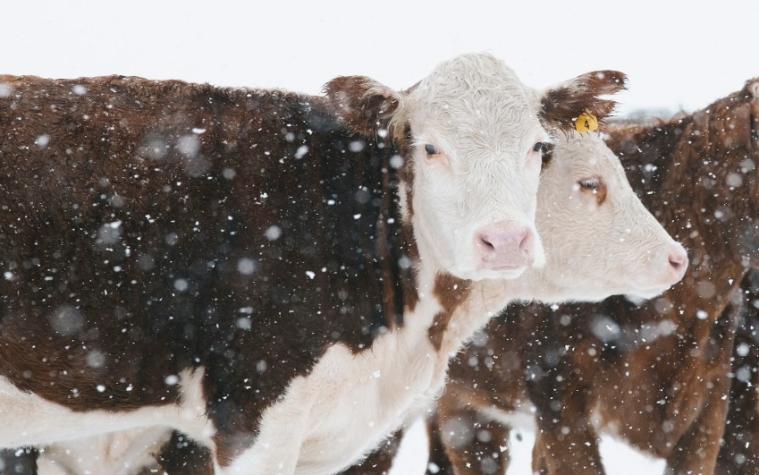
Theileria losses may qualify for USDA Livestock Indemnity Program
Beef producers who have lost cattle to Theileria orientalis may qualify for financial assistance through USDA’s Livestock Indemnity Program, says Craig Payne, MU Extension director of veterinary medicine. The program provides payments to livestock owners when deaths exceed normal mortality due to weather, predator attacks or eligible diseases.
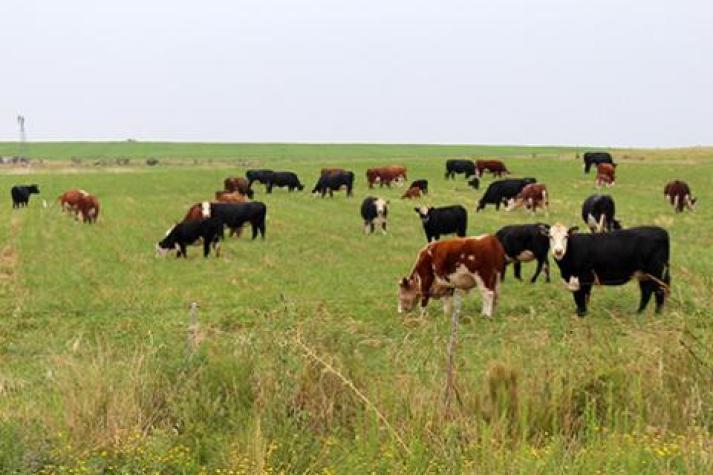
Cattle disease that causes anemia spreading in Missouri
University of Missouri Director of Veterinary Extension Craig Payne urges cattle producers to watch for signs of disease associated with Theileria orientalis (ikeda), a protozoal organism recently detected in Missouri.
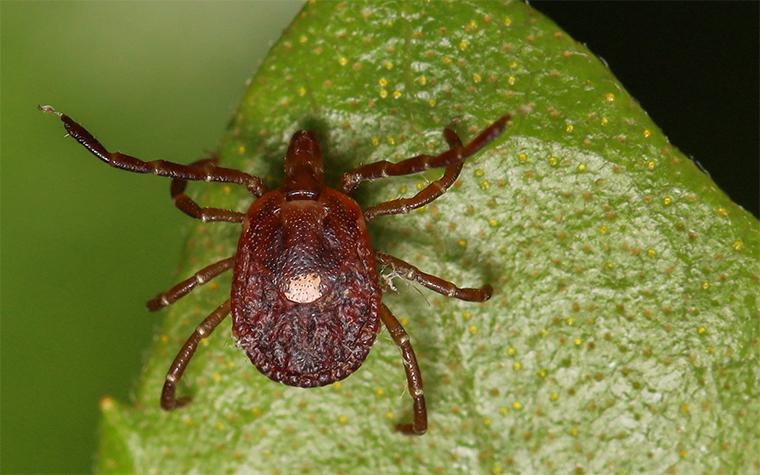
Livestock producers face health threats from ticks
Due to the nature of their work, livestock farmers are often exposed to ticks, which can cause serious health issues, including alpha-gal syndrome, which can cause an allergy to red meat, milk and some animal byproducts.
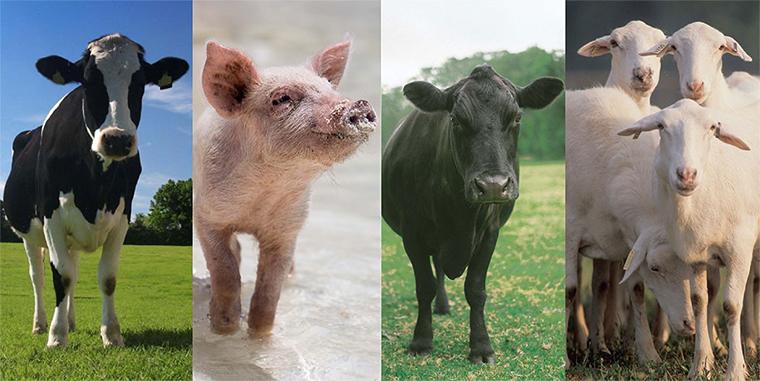
MU expands continuing ed for veterinarians who work with food animals
The MU College of Veterinary Medicine recently launched five on-demand continuing education courses for veterinarians providing practical education in food animal medicine and production. Learners can complete modules at their own pace while earning up 0.5 hours of CE credit per course.
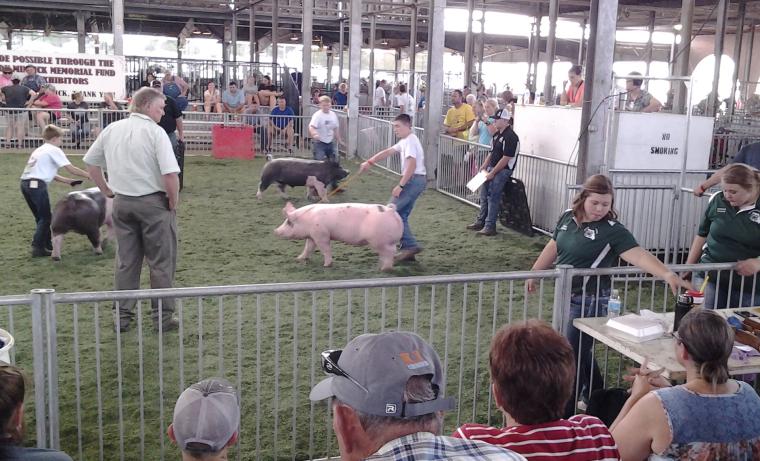
MU vet recommends CVI for safe showing of animals
Obtain a CVI to ensure animals are healthy and safe for shows, preventing disease and meeting veterinary requirements.
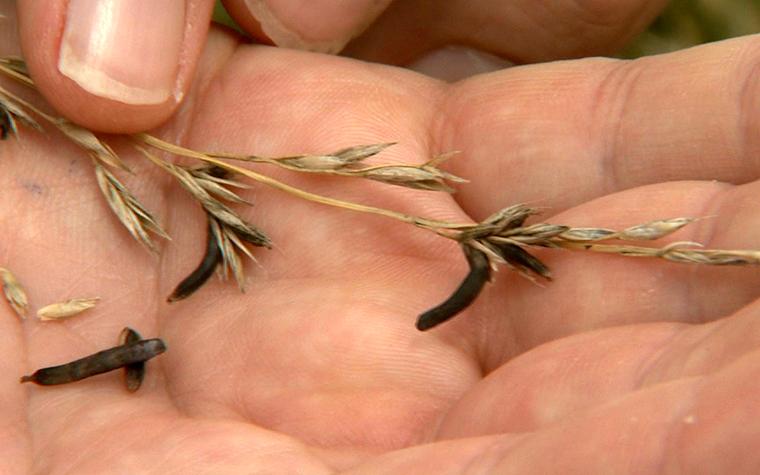
Making hay to reduce ergot infestation
Learn how to manage ergot infestations in pastures to protect livestock health. Tips on mowing, haymaking, and recognizing symptoms of ergot poisoning.
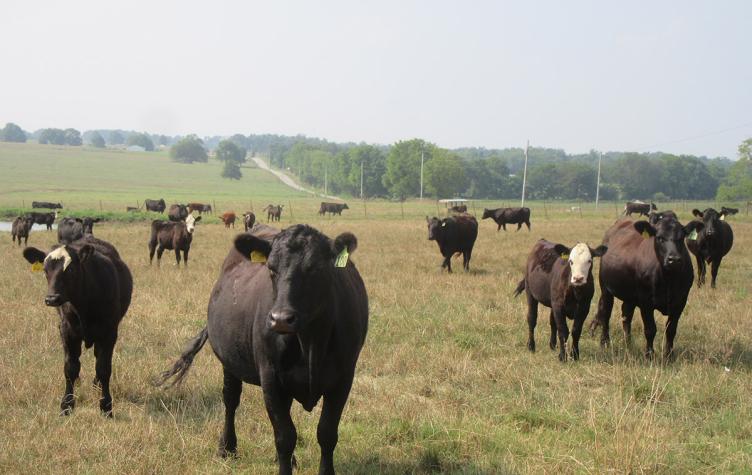
Tall fescue adds to heat stress in cattle
Cattle rid their bodies of heat in three ways: radiation, convection and evaporation. “If your cattle can’t use all three methods, they’ll overheat fast,” says University of Missouri Extension state beef nutrition specialist Eric Bailey. Summer heat knocks weight off calves and pounds off milk, Bailey says. “Heat stress costs real money.”
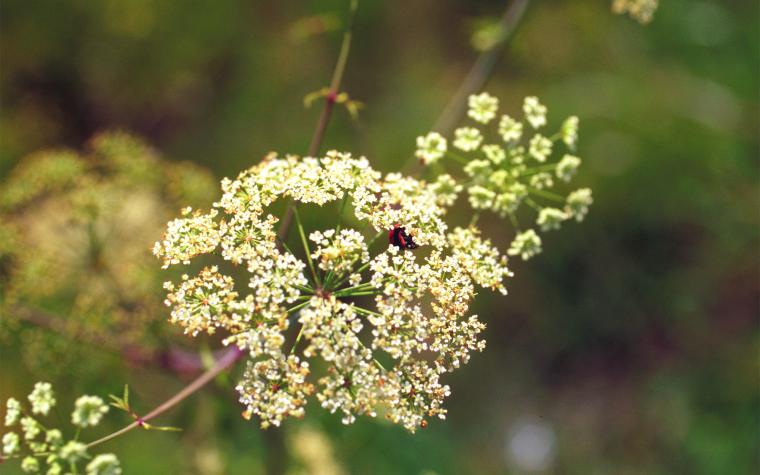
Mow or spot spray poison hemlock now
Poison hemlock, a plant that can kill livestock, is flowering and setting seed now in much of Missouri. While early control is recommended, it still can be managed with spot treatments or mowing, says Kevin Bradley, University of Missouri Extension weed scientist. It grows in ditches, roadways, fencerows, occasionally in pastures or hayfields that aren’t mowed regularly, and sometimes in no-till cropping systems.
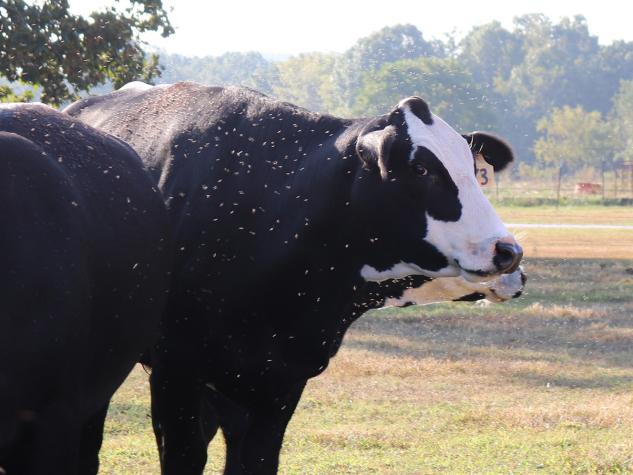
Fly and tick control in cattle
It’s the time of year when flies and ticks start becoming a problem for cattle, and they can be more than just a nuisance. “These external parasites not only cause irritation and stress but also reduce production efficiency and serve as vectors for certain cattle diseases,” said Craig Payne, University of Missouri director of veterinary extension.

Early control needed for poison hemlock
Control poison hemlock early using herbicides or mowing to protect livestock from its toxic effects.
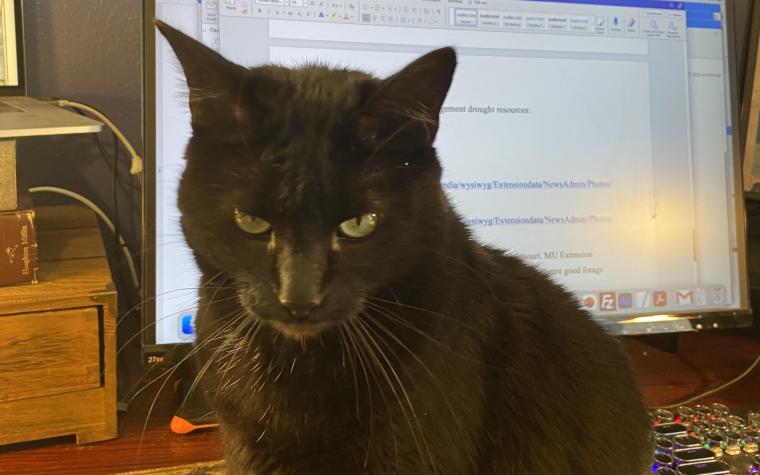
5 tips to protect your pet from household hazards
COLUMBIA, Mo. – National Pet Poison Prevention Month in March is a good time to review how household items can endanger pets, says University of Missouri Extension veterinary toxicologist Tim Evans. Evans lists a few things to check in your home: 1. Safely store all household items that could be a danger to your pet. Pay particular attention to bedside or tableside medications that could cause serious injury or death to your pet.
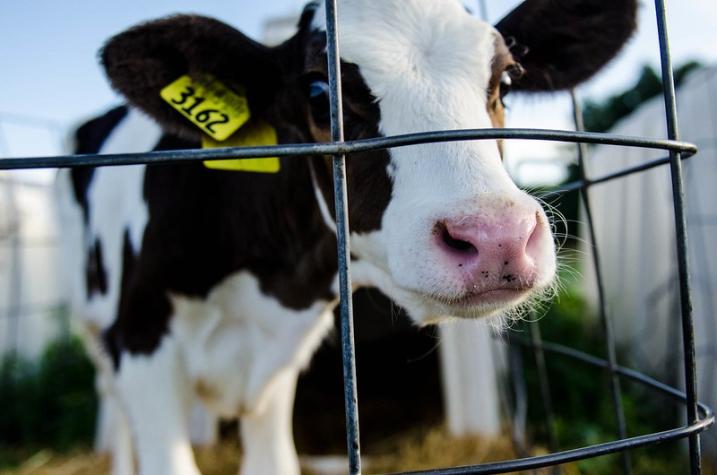
MU Extension publishes vaccination overview for cow-calf operations
Explore essential vaccination strategies for cow-calf operations, covering key diseases, vaccine types, and sample schedules to enhance herd health.

Experts urge biosecurity in poultry flocks
Missouri urges poultry producers to enhance biosecurity to combat HPAI; public health risk remains low.

Candy is dandy, except for pets
Alerts pet owners: chocolate and candies with raisins, nuts, xylitol, or excess sugar can trigger vomiting, seizures, and liver harm in pets.
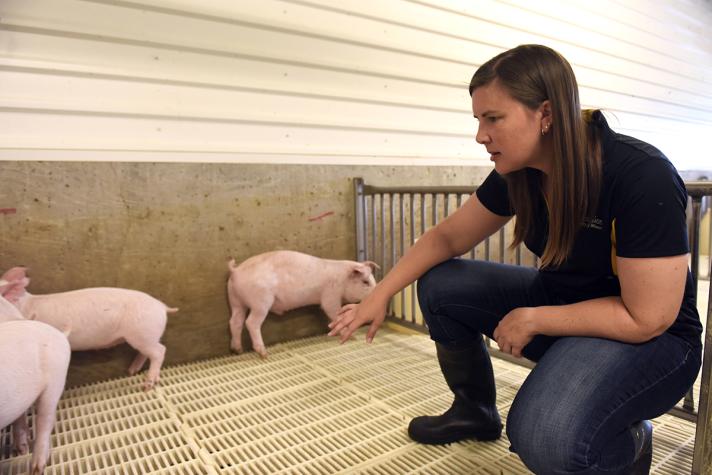
Swine specialist says biosecurity biggest protection from H5N1 in pigs
Protect pig herds from H5N1 by strengthening biosecurity, controlling exposure to waterfowl, and monitoring worker health and movement.

Managing pinkeye in cattle
Learn strategies to prevent and manage pinkeye in cattle, including fly control, vaccination, and early detection.
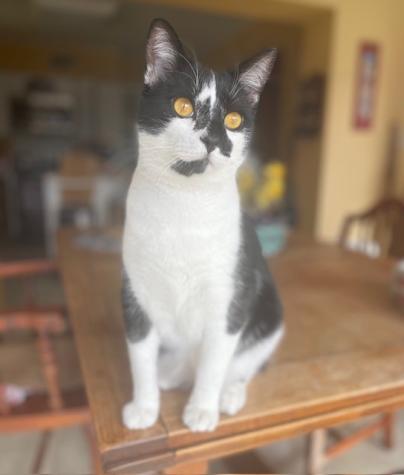
National Animal Poison Prevention Week is in March
Help protect pets and livestock by spotting toxic plants, chemicals and warning signs in March during animal poison prevention week.
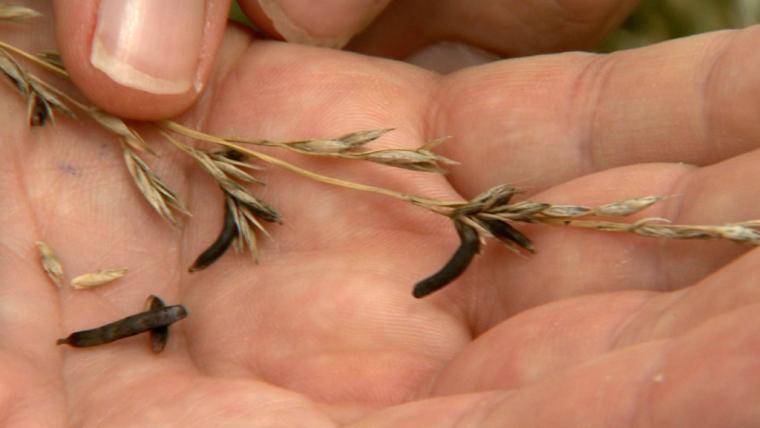
Time to scout for ergot
COLUMBIA, Mo. – University of Missouri Extension state forage specialist Craig Roberts says now is the time to check for ergot in the seed heads of grasses. Ergot can cause severe illness in livestock, especially cattle and horses. One early sign is yellow syrup drops called honeydew in flowering seed heads. Honeydew hardens and turns into dark ergot bodies, which look like mouse droppings and are up to 10 times the size of the grain.
Avoid applying nitrogen to tall fescue pastures in spring
Reduce livestock loss and toxin risk by avoiding nitrogen fertilization on tall fescue pastures in spring; reserve fertilizing for fall.
Veterinary prescriptions required for antibiotics in the coming months
Starting June 11, 2023, certain livestock antibiotics will require a veterinary prescription, ending over-the-counter sales. Plan ahead with a vet.
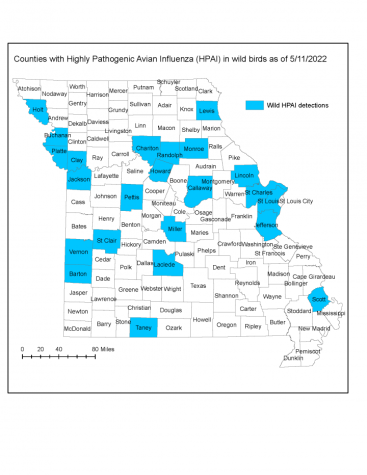
Avian flu numbers drop as summer nears
COLUMBIA, Mo. – With avian influenza numbers dropping, bird lovers can continue to enjoy feeding their feathered friends with little risk, says Robert Pierce, University of Missouri Extension wildlife and fisheries specialist. Fewer reports of dead and sick birds point to an end to the current outbreak of avian influenza, Pierce says. Rising summer temperatures also will likely lead to a decrease in avian influenza.
How to properly care for the newborn calf
COLUMBIA, Mo. – Many beef and dairy calves will be born in the next three months. As spring calving season approaches, University of Missouri Extension experts stress the importance of properly caring for newborn calves.
Plan now for antibiotic changes on the horizon
Plan ahead as many livestock antibiotics will soon require a veterinarian’s prescription under new FDA rules.
Evaluate your calving distribution this spring
COLUMBIA, Mo. – Record calf birthdates this calving season to track calving distribution.“Evaluating a calving distribution takes very little time but can provide valuable insight into reproductive performance and productivity of the herd,” says University of Missouri Extension veterinarian Craig Payne.Calving distribution is often expressed as the percentage of calves born at 21-day intervals, since 21 days is the average length of…
